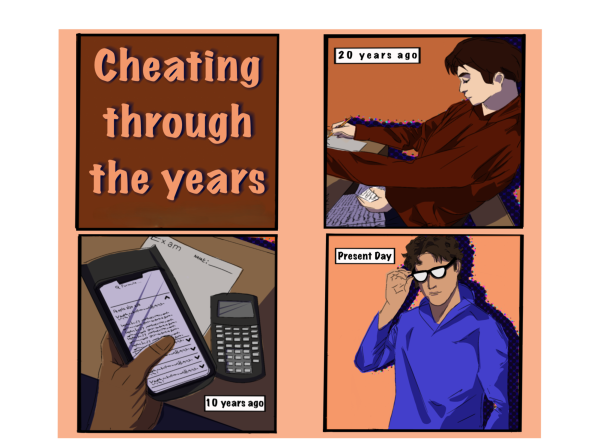AP cheating widespread
Ah, AP classes. They get the best of us. For those students that don’t know what an AP course is let this editorial staff give you a rundown.
An AP class is a weighted class taught by a (sometimes) qualified teacher that ends its course in May, when the nation-wide AP tests take place. These tests are worth college credits and cost $110.
That’s pretty much it.
Well, there are some other parts of AP classes worth noting, like avid AP students suffering mental breakdowns on a daily basis, or AP teachers having some fascination with assigning rather pointless projects after the coursework should have been over. (We took the test, can’t we just stop pretending like we care?)
As colorful as AP classes tend to be, nobody seems to consider the possibility of cheating.
As recent events would have it, cheating in AP tests is rampant, and it occurs in all AP classes as students can get away with it.
So, are AP students overly stressed, too stupid, or just so smart that they figure cheating is more efficient than learning the material?
We believe that cheating is always wrong, but maybe we should evaluate the presence of cheating in the classes that are supposed to represent the best and the brightest of our school.
AP students are really smart and as some of us have taken a multitude of AP classes ourselves, we can (sort of) attest to that.
AP kids aren’t cheating because they “don’t get it.” Some of the more dishonest students may be cheating because they don’t want to work hard, which is a very real possibility. But more likely than not, they’re overwhelmed by outside classes and activities and don’t have time to study.
Cheating is dishonest, wrong and really stupid because those who do it never learn the material. And most of the time, cheating is harder than just doing the work of studying.
Sometimes, teachers take the offense personally, believing that they did something wrong that would lead to cheating.
So, as a school, we need to encourage an environment where being overwhelmed and stressed is something that can be managed.
We can’t pressure students to be perfect human beings, and teachers definitely need to stop assigning unnecessary work that does nothing to benefit the learning or grade of the student.
This means when the AP test is done, fluff work is no longer relevant because everything has already been learned.
By removing some of the pressure from the students and not being so tough about grades, teachers could not only prevent cheating, but also avoid the hurt and disappointment that comes along with it.

